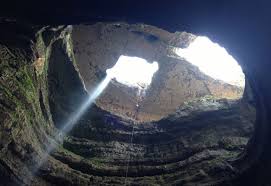
Nature of work
A hydrologist uses detailed data sources, computer modeling packages and other resources to collect, analyze and interpret data. He/she plays an important role in ensuring safe, sustainable and environmentally good management of natural and domestic water resources. He/she works with specifically designed computer modeling packages to assess the most effective methods of managing available water in a particular area. He/she can analyze the effect of environmental changes on water flow, study the effects on flows brought about by changes in land use such as afforestation or crop irrigation. He/she also plans responses to specific weather conditions, such as droughts and floods, and assess the impacts of such events on water catchments and supplies. He/she undertakes hydrological modeling to allow the development of flood forecasting and drought management strategy. He/she estimates water yields, takes into consideration the utilization of water in a specific natural drainage area. He/she examines factors affecting acidity, nitrate levels or other diffuse pollution of surface water. He/she audits water resource systems and analyzes this data; and develops computer systems to improve the efficiency of data collection and analysis. Environment of work
Working hours may include regular extra hours, but not usually shifts. Flexible work is available at some companies/organizations, where there may also be some flexibility to allow occasional working from home. Long hours and working under pressure, may be required if needed, like a flood. The site-based work outside the office varies according to roles. Time may also be spent out of the office at meetings with clients, consultants, and stakeholders. Work is often project-based, providing a good level of variety. Projects are often team-based, whilst independent work may involve liaising with colleagues and external organizations. Part-time work and career breaks may be available with some employers. Self-employment work is sometimes possible. Hydrological experience is often supplied on a consultancy basis and so the right background, experience, project management and client-handling skills become more important as the career develops. Travel within the working day is frequently necessary. Overnight absence from home and overseas travel may be required. Professional life
Promotion is based on gaining a broad range of experience in the various practical aspects of hydrology. Advancement through an organization is a way to develop in the field. It may be necessary to undertake further qualifications, depending on his/her career aims and whether he/she wants to specialize in a particular area of hydrology. Progression may be towards water resources management or senior scientific posts within environmental organizations. A senior hydrologist will need to feel comfortable making decisions on often controversial and sensitive issues. Employment in international organizations developing water resource strategies is also possible. Some hydrologists choose to pursue an academic career in research and there are opportunities at universities offering relevant courses. With five to ten years' experience, a number of hydrologists move on to work independently on a consultancy basis or as part of a larger, multidisciplinary consultancy company.Range of typical starting salaries: 45000 SYP.
Getting the job
Relevant degree subjects that cover elements of hydrology include: environmental science, environmental management, civil engineering, geography (with a physical science base), geology, soil science ecology.Detailed training in hydrology is usually covered at postgraduate level. Although not necessary for all jobs, a postgraduate degree is recommended, and increasingly required at senior level, because of the level of competition for posts. Whilst pre-entry experience is not formally required, relevant experience, such as a work placement in a relevant or related field, such as hydrometrics, is recommended. Most hydrologists need a master’s degree, but a bachelor’s degree is adequate for some entry-level positions. Applicants for advanced research and university faculty positions typically need a Ph.D. A student who has experience with computer modeling, data analysis, and digital mapping will be the most prepared to enter the job market. Also, a hydrologist uses geographic information systems (GIS), remote sensing, and global positioning system (GPS) equipment to do their jobs.
Skills
A candidate will need to show evidence of the following:- Good technical knowledge.
- Communication skills.
- Numeracy and a good understanding of mathematical modeling and IT programming skills (depending on the role).
- Analytical skills.
- Project management skills.
- High level of commitment and self-motivation.
- A logical, methodical approach and good organizational skills.
- A flexible approach to work and the ability to adapt to change and deal effectively with many situations.
Sources and references
If you need any further information on what is included in this file, you can visit the following websites:- www.hydroweb.com, A worldwide association for hydrology and the environment
- ghrc.msfc.nasa.gov, The Global Hydrology Resource Center
- The Order of Syrian engineers, Damascus, Tel: 6627256
- www.arab-eng.org, Arab Engineers Forum.
- Arab Standard Classification of Occupations, 2008, Ed. Arab Labor Organization.
